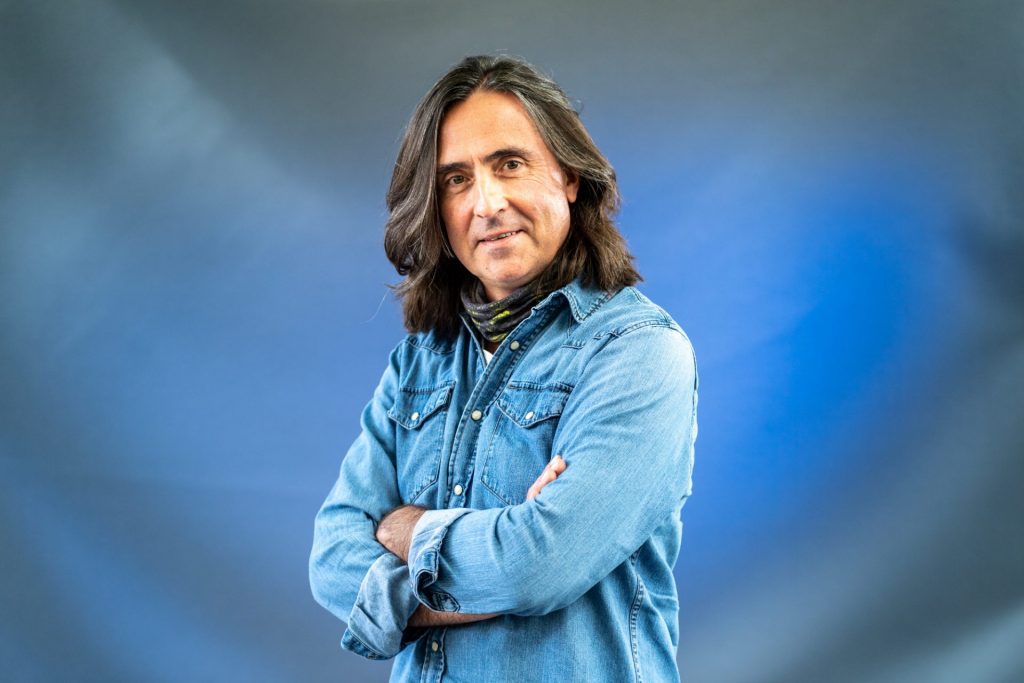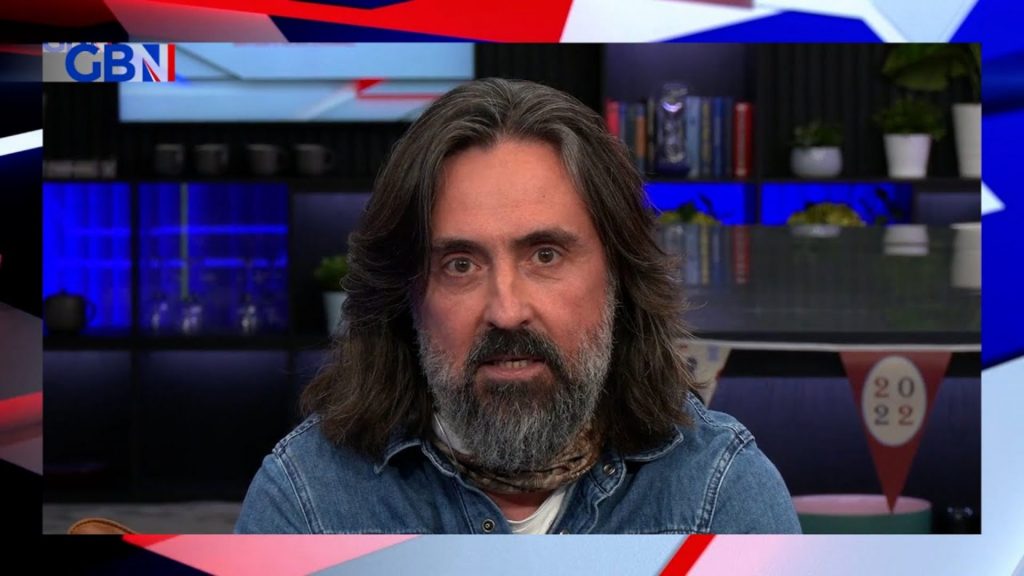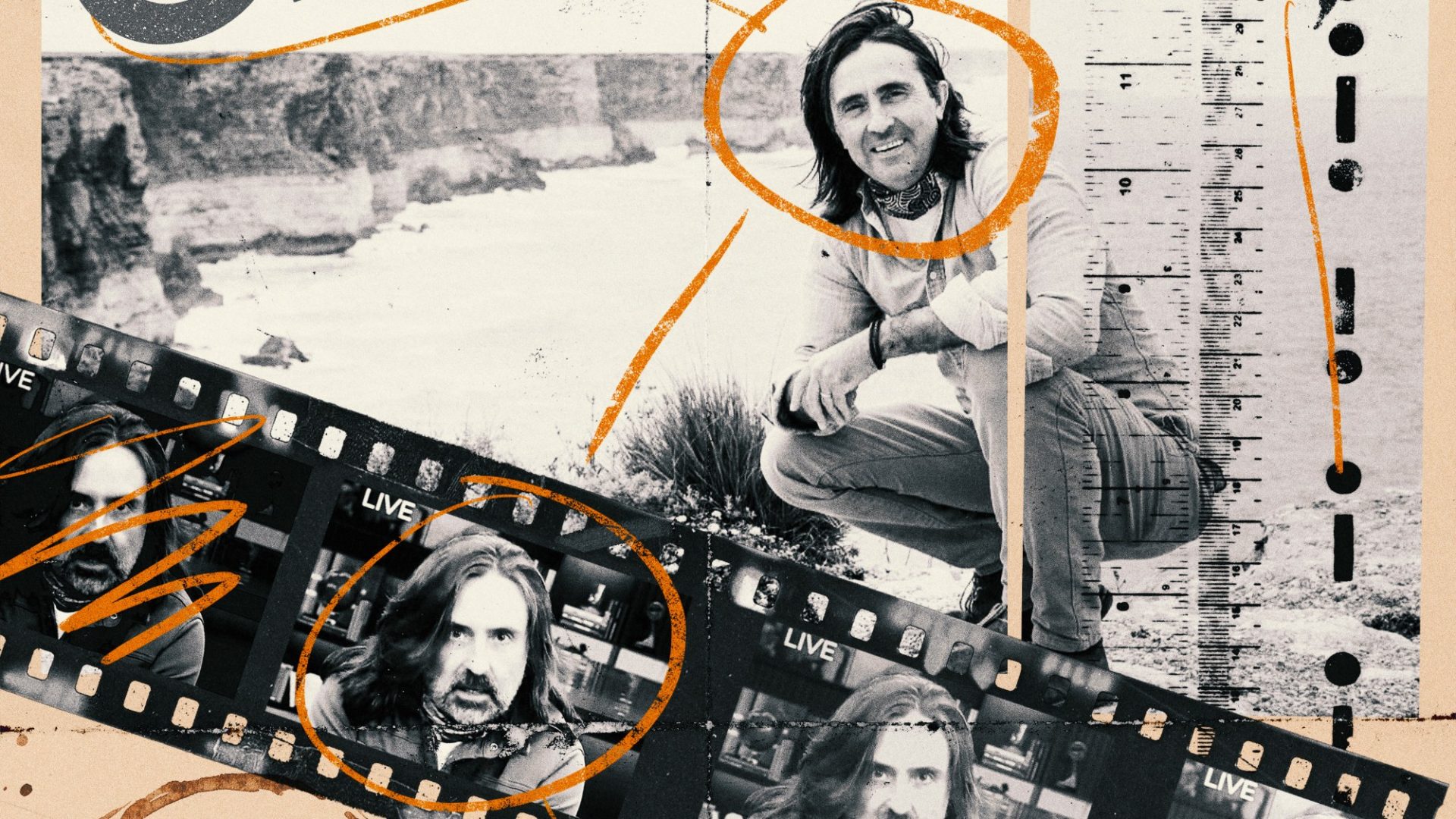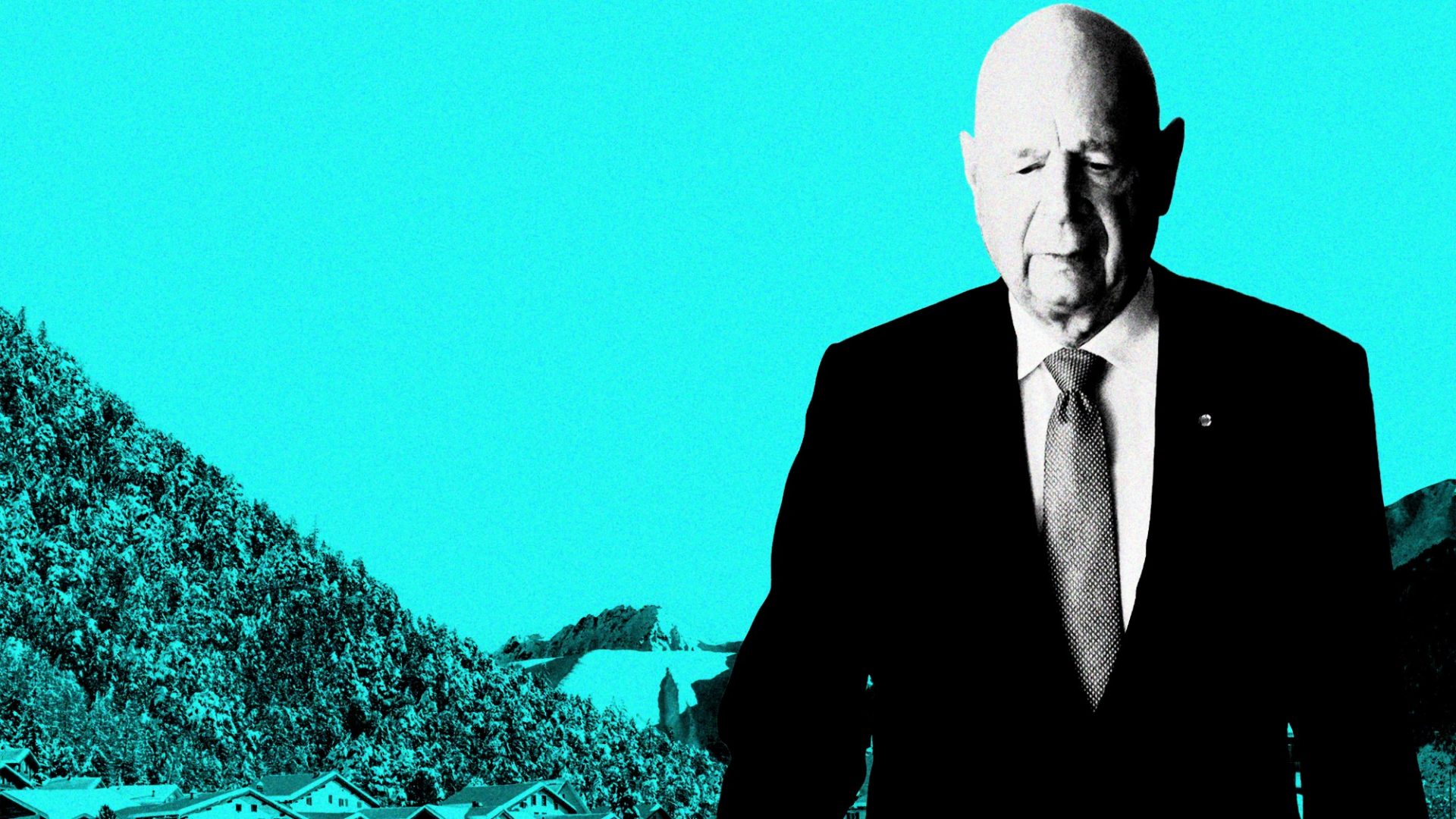Neil Oliver recently posed a question to his more than half a million followers on X. “That Britain and Europe have been made the world’s toilets is beyond dispute,” he wrote. “The question is by whom, and why?” Unwilling to leave things at that, a few hours later he added, “Obviously I know.”
Well of course, “obviously”. As a leading peddler of misinformation on, among other things, Covid-19, vaccines, climate change, war, transnational health agencies and global “elites”, this public eruption offers a precise encapsulation of Oliver’s deeply worrying shtick.
In the last five years, the once wholesomely avuncular host of many a popular BBC history programme has become a GB News ranter, immersing himself in the deadening swamp of conspiracy and proudly boasting on social media about his friendship with Russell Brand. As the words “obviously I know” imply, Oliver’s sense of certainty on topics about which only a few years ago he had made no public utterance is unshakeable.
Oliver once won awards for walking through coastal towns and marvelling at their beauty and resilience. Now he is best known for controversies – censure by YouTube for an interview with the alleged antisemite Whitney Webb; false claims about “turbo cancers” and global temperatures; comments that Bristolians toppling a statue of the slaver Edward Colston was the first step on “the road to the guillotine”; comparing Justin Trudeau to Vladimir Putin; and defending the socio-political quackery of David Starkey.
It was in the summer of 2021, with the launch of GB News, that Oliver traded in his status as a reassuring TV talking head for that of the weirdest guy on the box. Some of his theorising has become so outlandish that he now appears exclusively on its online arm, GBN Originals, beyond the reach of Ofcom. Given that the channel continues to air the views of Leo Kearse, a man who referred to immigrants as “street shitters”, Oliver’s banishment is surely revealing.
“I think there’s a duty of care angle to this,” says the broadcaster Matthew Sweet, who advised on a guide to conspiracy theories for MPs. “I think the HR department of GB News should have looked after Neil Oliver. Instead, they’ve made him an exhibit in a freak show. They even make money out of him going mad.”
What happened to Neil Oliver? According to Carlos Alba, a columnist with the Scottish Herald and a former friend and flatmate, Oliver never had much interest in music, sports, or even in his job reporting for the local paper. He did, however, have a taste for what sounded like tall tales. Among other things, he claimed that he could read an entire novel while standing at the shelves of a bookshop.
“He wasn’t even interested in modern history,” Alba recalled, in a piece for the Herald. “He had studied archaeology, he said, because he found discovering evidence of flint chips left by a hunter-gatherer sharpening a spear thousands of years ago more fascinating than decisions made by politicians and army generals.
“This was the closest I ever came to hearing him expound a personal philosophy – as far as I could tell, he had no strongly held political convictions.”


Oliver did, though, have a way with a camera, and his oratorical forays atop sand dunes and cliff tops over nine seasons of the BBC programme Coast made him a household face. Solo outings such as A History of Ancient Britain followed, as did several popular history books and a long-running newspaper column for the Scottish Sunday Times.
That output now feels like a dispatch from another age. Back in 2011, statements such as “this is Britain right in the heart of the iron age, a time of huge transformation for our land” – pause – “and its people” were about as political as it got.
But change was coming. The decision to back the union in the Scottish independence referendum in 2014 saw Oliver wade into divisive waters for the first time. Having achieved victory, in 2020 his description of a second referendum as “a cancerous presence” suggested his language, and sense of proportion, were starting to slip.
Then came the pandemic. Oliver no longer confined himself to history, or even to Scottish nationalism. In barely three months, his Sunday Times column went from Adrian Chiles-like fluff – “My Heath Robinson recording studio is as humid as Burma” – to a column in which he complained: “more and more I am troubled by the way any and all dissent in the face of official narratives is written off as conspiracy theories”.
Lockdown, according to Oliver, was “the biggest single mistake in world history,” and vaccine dissenters were likened to those who resisted the Nazis. By 2023, he had resigned from the Royal Society of Edinburgh. A spokesman for the scientific body said: “In discussion with Mr Oliver, it was clear he understood that his current views on various matters, widely aired on television, put him at odds with the scientific and broader academic learning within the society.”
Few beyond Oliver’s most dedicated supporters would describe him as an intellectual giant, and his views are riddled with absurdity and contradiction. But his assertions also have a sinister edge. The idea that elites have turned Britain and Europe into “the world’s toilets”, and other rants about “one-world government”, are lapped up on social media by his many fans, a worrying number of whom are outright antisemite racists obsessed by one of the most enduring conspiracies of all: the Great Replacement theory.
This white-nationalist far right conspiracy says that Europe is being overrun by foreigners – predominantly non-white Muslims – whose culture will replace our own, and that their arrival is being orchestrated by a sinister, shadowy cabal. Usually, these puppeteers are the Jews.
“It’s indisputable that in conspiracies… you end up with antisemitism, even though that’s not always where you start,” says Danny Stone, chief executive of the Antisemitism Policy Trust. “When one gets into that space, you swim in this quagmire where you’re only ever a hair’s-breadth away from an antisemitic conspiracy theory. With so many of the conspiracies that Oliver has been either directly engaging with, or kind of hinting at, they’re just not that far from antisemitic conspiracies.”
Certainly, Oliver is fluent in the kind of coded language familiar to those who fixate on the apparently boundless demonic agency of the Jewish mind. In one clip on YouTube, he proclaims that “we’re definitely moving, inexorably, towards a one-world government, without a shadow of a doubt. All of that Great Reset… New World Order, fourth industrial revolution – all of that is absolutely happening.”
Although Oliver himself has never linked this to a Jewish conspiracy, many of his most loyal followers do. In answer to his question on X as to who is responsible for turning Britain and Europe into “the world’s toilet”, one furtive respondent replied, “We know. You know. We all know, but yet we can’t talk about it.” Unafraid and unashamed, another stepped into what I imagine he thinks of as the light. “Jews,” he wrote.
He has also allowed apparent antisemitism to go unchallenged on his YouTube channel. A recent video – since deleted – included a guest on Oliver’s show, Ivor Cummins, suggesting that mass migration into Ireland was being orchestrated by organisations that were “headed up by a certain peoples [sic], and that peoples you’re not allowed to discuss, but, you know, the Zionist thing”. He went on: “Most of them are led by, essentially, Zionist-type people.” Those who complained to Ofcom were reminded that it could do nothing as it has no brief to regulate social media.
As with most conspiratorially minded people, the 58-year-old is prone to flights of paranoia. “On YouTube, my subscriber count has been stuck at 318,000 for about three months now, which is possible, but I find it suspicious,” he told listeners of the Neil Oliver Podcast on March 20 (at the time of writing, this number has risen by 2,000). His video clips bear headlines such as “The Elites Don’t Want You to Know This!” The spectre (and promise) of censure is ever-present. Much of Oliver’s time is spent talking about things he claims he’s not allowed to talk about.
But when it comes to his rhetoric, it’s never enough to push the boundaries only once. In March, a week after the fifth anniversary of lockdown, he wrote: “There’s no such thing as Long Covid because there’s no such thing as Covid.” (The post, on X, has been viewed more than half a million times).
In researching this article, it was at this point that I felt the anger start to rise. Reading Oliver’s wantonly glib assertion, I was reminded of a friend of mine, who suffers grievously from Long Covid. When he fell ill, it was, he said, “the worst feeling I’ve had,” and he was “barely able to move at all”. Today my friend, who is 58, says his physical capacity is still only “about 20%”.
“If I’ve been active, in any way, the next day I ache from the neck down. If I’ve been out, when I get home I feel like I could collapse, and sometimes I do collapse.” Asked for his opinion of Oliver’s statement, my friend replies, “I think people like that are so ignorant. It’s ridiculous… I don’t know where he gets his ideas from when there’s so much evidence about Covid out there.” Oliver gets at least some of his ideas from fellow conspiracy theorists whom he interviews on his show. Droning away into the lens of a camera with all the nuance of a pile driver.
I invited GB News to discuss Oliver’s output, but the broadcaster declined to comment. One of his biggest defenders, the Australian journalist Helen Dale, also declined to comment on the record. Up at the source of the river, a request to talk to Oliver himself, sent via his website, went unanswered.
One person who did agree to speak to me was his fellow GB News presenter Bev Turner. “History will look back on Neil Oliver and realise that he was ahead of the curve on everything that mattered,” she wrote via text. “He is as forensic in his research now as he was when he was a respected BBC expert on history and the natural world. His approach to diligent understanding didn’t change. He only became an outsider when he started asking important questions about political systems that prioritise billionaires over hardworking, normal people… He is one of the kindest souls and the least prejudicial people I know.
“He cares deeply about humanity – regardless of race or religion. I’ve walked down the street with him and seen people literally cry in his presence. They say ‘thank you. You keep me sane…’ By 2025, anyone who doesn’t at least empathise with his concerns is being wilfully ignorant.”
Unlike some others who have detected money and influence on the conspiracist right and adjusted their own views to match, Oliver does at least appear as committed to the beliefs he espouses as the fans who cry at the sight of him. Yet one sentence in Alba’s piece for the Herald seems especially revealing. “Neil was a collector rather than an innovator or a protagonist – he collected quotes, phrases, anecdotes, experiences and even people, before discarding them and moving on.”
Which sounds to me rather like dilettantism. Not one of Oliver’s conspiratorial theories is in any way original, or even new. Consider this familiar-sounding diatribe, from Robert W Welch Jr, the founder of the American far right group the John Birch Society in 1958. “The US… [is] controlled by the same furtive conspiratorial cabal of internationalists, greedy bankers, and corrupt politicians… If left unexposed, the traitors inside the US government would betray the country’s sovereignty to the United Nations for a collectivist New World Order, managed by a ‘one-world socialist government’.”
Asked about Oliver’s invective, Danny Stone from the Antisemitism Policy Trust replies: “My worry about all of this, about conspiratorial language and those kind of narratives, is I feel that there is a toxicity to public discourse at the moment, and a rubbing away at the edges of what is civilised society. And it doesn’t happen in one fell swoop. It’s a kind of slow burn. Without challenge… to allow discourses like that to feed in, we will burn away at the edges and this stuff will become more mainstream.”
He continues: “The responsibility of using appropriate language and using checks and balances is a high one. We really need those checks and balances. And the problem at the moment is that so much of this is framed in the free-speech discourse, where any attempt to say we need checks and balances, and we need to be careful, can be met with the charge that you’re against free speech.”
Oliver is a marginal figure when considered in the context of mainstream broadcasting. Even his social media audiences are at best moderate when compared with masters of the medium. But his fascination is two-fold.
Firstly, his transmogrification from one of TV’s most benign presenters into a man trading in some of the wildest conspiracies of our age. And secondly, the degree to which conspiracy theorists like Oliver can operate online with total impunity and zero regulation.
Ian Winwood is a journalist and author whose work has appeared in the Guardian, Rolling Stone and the BBC



